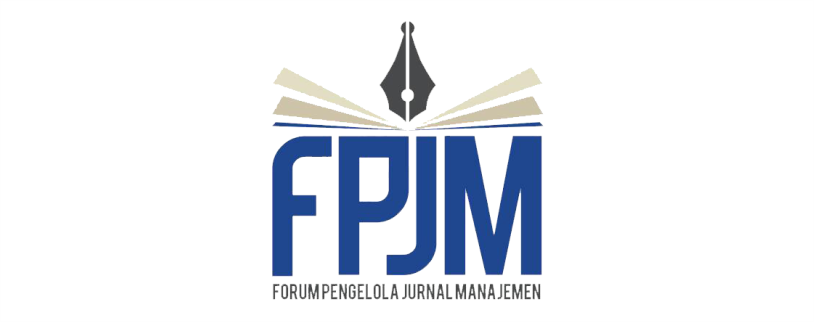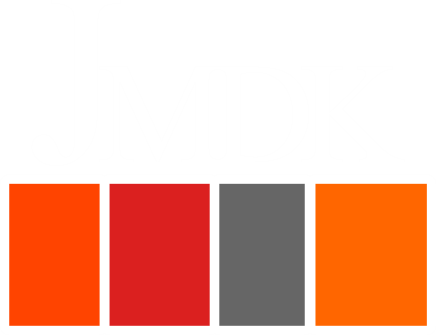Information Technology and Religiosity as Moderating Variables of the Relationship between Investment Risk-Taking and Firm Performance
DOI:
https://doi.org/10.26905/jmdk.v10i2.8241Keywords:
Information Technology, Religiosity, Investment Risk-Taking, Firm PerformanceAbstract
Study on the impact of investment risk-taking on the performance of small and medium enterprises (SMEs) are still inconsistent. This study provides novelty to the relationship between the two variables by adding moderating variables of information technology and religiosity. This study took a sample of 94 SME owners in Banyumas Regency. The results show that the influence of investment risk-taking and information technology has no significant results. The higher level of religiosity of the SME owners will be able to improve the company's performance. The moderating relationship between information technology and investment risk-taking shows significantly positive results. In contrast, the moderating effect of the religiosity variable will further reduce the effect of investment risk-taking on company performance.
Downloads
References
Adi, P. H., & Adawiyah, W. R. (2018). The impact of religiosity, environmental marketing orientation and practices on performance: a case of Muslim entrepreneurs in Indonesia. Journal of Islamic Marketing, 9(4), 841–862. https://doi.org/10.1108/JIMA-09-2016-0067
Alalmai, S., Al-Awadhi, A. M., Hassan, M. K., & Turunen-Red, A. (2018). The influence of religion on the determinants of capital structure: the case of Saudi Arabia. Journal of Islamic Accounting and Business Research, 11(2), 472–497.
https://doi.org/10.1108/JIABR-03-2018-0043
Al Asheq, A., & Hossain, M. U. (2019). SME performance: Impact of market, customer and brand orientation. Academy of Marketing Studies Journal, 23(1), 1-9.
Brown, R., Rocha, A., & Cowling, M. (2020). Financing entrepreneurship in times of crisis: exploring the impact of COVID-19 on the market for entrepreneurial finance in the United Kingdom. International Small Business Journal: Researching Entrepreneurship, 38(5), 380–390. https://doi.org/10.1177/0266242620937464
Cheong, C. W. H. (2018). Religiosity and corporate risk-taking. Asian Journal of Finance & Accounting, 10(2), 81. https://doi.org/10.5296/ajfa.v10i2.13749
DÃez-Esteban, J. M., Farinha, J. B., & GarcÃa-Gómez, C. D. (2019). Are religion and culture relevant for corporate risk-taking? International evidence. BRQ Business Research Quarterly, 22(1), 36–55. https://doi.org/10.1016/j.brq.2018.06.003
Ding, Y., & Velamuri, V. M. S. R. (2016). Institutional complexity and the strategic behaviors of SMEs in transitional environmen. International Journal of Emerging Markets, 11(4).
Disatnik, D., & Sivan, L. (2016). The multicollinearity illusion in moderated Regression Analysis. Marketing Letters, 27(2), 403–408. https://doi.org/10.1007/s11002-014-9339-5
Dvorsky, J., Belas, J., Gavurova, B., & Brabenec, T. (2020). Business risk management in the context of small and medium-sized enterprises. Economic Research-Ekonomska Istraživanja, 0(0), 1–19. https://doi.org/10.1080/1331677X.2020.1844588
Elias, M. E., Nawi, M. N. M., Mahidin, N., & Pozin, M. A. A. (2019). The influence of religiosity leaderships practices towards the smes business performance in food and beverages industry. International Journal of Supply Chain Management, 8(1), 644–652.
Frijns, B., Hubers, F., Kim, D., Roh, T.-Y., & Xu, Y. (2022). National culture and corporate risk-taking around the world. Global Finance Journal, 100710. https://doi.org/10.1016/j.gfj.2022.100710
Games, D., & Rendi, R. P. (2019). The effects of knowledge management and risk taking on SME financial performance in creative industries in an emerging market: the mediating effect of innovation outcomes. Journal of Global Entrepreneurship Research, 9(1), 1-14.
Grable, J. E. (2016). Financial risk tolerance. In Handbook of Consumer Finance Research (19–31). https://doi.org/10.1007/978-0-387-75734-6
Grable, J., & Lytton, R. (1999). Financial risk tolerance revisited: the development of a risk assessment instrument. Financial Services Review, 8, 163–181. https://doi.org/10.1016/S1057-810(99)00041-4
Gujarati, D. N. (2003). Basic Econometics. McGraw-HiII/lrwin.
Hayes, A. F. (2013). Introduction to Mediation, Moderation, and Conditional Process Analysis (D. A. Kenny & T. D.Little (eds.)). The Guilford Press.
Ii, W. W. B., Saunders, K. T., & Saunders, K. T. (2020). Entrepreneurial Finance : Analyzing the Demand for the Personal Guarantee. 22(2).
Juergensen, J., Guimón, J., & Narula, R. (2020). European SMEs amidst the COVID-19 crisis: assessing impact and policy responses. Journal of Industrial and Business Economics, 47(3), 499–510. https://doi.org/10.1007/s40812-020-00169-4
Kurniawati, S. L., Lestari, W., Sari, L. P., & Kartika, T. P. D. (2020). Shariah governance, Maqasid al-Shariah, SMEs performance: the role of gender and age. Journal of Economics, Business, & Accountancy Ventura, 23(2), 279-292.https://doi.org/10.14414/jebav.v23i2.2374
Nabeel-rehman, R., & Nazri, M. (2019). Information technology capabilities and SMEs performance: a understanding of a multi mediation model for the manufacturing sector. Interdisciplinary Journal of Information, Knowledge, and Management, 14, 253–276.
Neirotti, P., & Raguseo, E. (2016). Information & management on the contingent value of IT-based capabilities for the competitive advantage of SMEs : Mechanisms and empirical evidence. Information & Management, 2015. https://doi.org/10.1016/j.im.2016.05.004
Park, H. U. N., Yoo, J., Moon, S., Yoo, H., Lee, H., Kwon, T., & Hahn, H. (2019). Effect of technology and market dynamism by supporting services. Science, Technology & Society, 1(24), 144–160. https://doi.org/10.1177/0971721818806113
Pierre-Olivier Gourinchas, Kalemli-Özcann, Ṣebnem, Penciakova, V., & Sander, N. (2020). Covid-19 and SME failure. In NBER Working Paper, 28(2).
Pratono, A. H. (2016). Strategic orientation and information technological turbulence: contingency perspective in SMEs. Business Process Management Journal, 22(2).
Pratono, A. H. (2018). Does firm performance increase with risk-taking behavior under information technological turbulence?: Empirical evidence from Indonesian SMEs. Journal of Risk Finance, 19(4), 361–378. https://doi.org/10.1108/JRF-10-2017-017
Purwidianti, W., & Darmawan, A. (2019). Peran mediasi perilaku keuangan pada pengaruh variabel demografi, risk tolerance dan religiusitas tehadap kinerja UKM di Kabupaten Banyumas. Laporan Penelitian.
Purwidianti, W., & Hidayah, A. (2015). Pengaruh orientasi kewirausahaan terhadap kinerja keuangan UMKM di Kembaran, Kabupaten Banyumas. Prosiding SNaPP2016 Sosial, Ekonomi, dan Humaniora, 245–252.
Rahaman, M. A., Luna, K. F., Ping, Z. L., Islam, M. S., & Karim, M. M. (2021). Do risk-taking, innovativeness, and proactivity affect business performance of SMEs? A case study in Bangladesh. The Journal of Asian Finance, Economics and Business, 8(5), 689-695. https://doi.org/10.13106/jafeb.2021.vol8.no5.0689
Raymond, L., Bergeron, F., Croteau, A., & St-pierre, J. (2016). IT-enabled Knowledge Management for the Competitive Performance of Manufacturing SMEs : An Absorptive Capacity-based View. Knowledge and Process Management, 23(2), 110-123. https://doi.org/10.1002/kpm
Stein, V., & Wiedemann, A. (2016). Risk governance: conceptualization, tasks, and research agenda. Journal of Business Economics, 86(8), 813–836. https://doi.org/10.1007/s11573-016-0826-4
Zahrah, N., Hamid, S. N. A., Rani, S. H. A., & Kamil, B. A. M. (2016). Enhancing job performance through Islamic religiosity and Islamic work ethics. International Review of Management and Marketing, 6(7), 195-198.
Zannah, M., & Mahat, F. (2021). The innovation, risk-taking and proactiveness on performance of SMEs in Nigeria, the moderating role of microfinance sponsored by TETFUND. IOSR Journal of Business and Management, 23(3), 20–27.
Zhao, S., & Zhu, Q. (2018). A risk-averse marketing strategy and its effect on coordination activities in a remanufacturing supply chain under market fluctuation. Journal of Cleaner Production, 171, 1290-1299. https://doi.org/10.1016/j.jclepro.2017.10.107
Downloads
Published
Issue
Section
License
Authors who publish with this journal agree to the following terms:
(1)Â Copyright of the published articles will be transferred to the journal as the publisher of the manuscripts. Therefore, the author confirms that the copyright has been managed by the journal.
(2) Publisher of Jurnal Penelitian is University of Merdeka Malang.
(3) The copyright follows Creative Commons Attribution–ShareAlike License (CC BY SA): This license allows to Share — copy and redistribute the material in any medium or format, Adapt — remix, transform, and build upon the material, for any purpose, even commercially.












